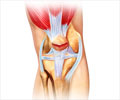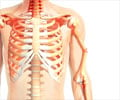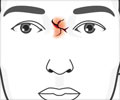A new study has revealed that adult stem cells can offer a new treatment for the 10 to 20 percent of fractures that fail to heal.
"Lack of fracture repair often leads to several surgeries, long periods of immobilization, pain, bone deformities, and sometimes death. The precise reason why a patient's fracture does not heal remains unknown in most cases," said senior investigator Dr. Anna Spagnoli, of the University of North Carolina.The researchers are of the opinion that a deficiency in adult stem cells, which normally become reparative cells in response to damage, may be the main reason why broken bones sometimes fail to heal.
Spagnoli say that stem cells in human bone marrow, called mesenchymal stem cells, can become bone, cartilage, fat, muscle, and blood vessel cells, and directing these stem cells into the repair mode is one of the objectives of a new branch of medicine called regenerative medicine.
She adds that the adult stem cells, which can be obtained from a patient's bone marrow in a minimally invasive procedure, have been reported to improve fracture healing in a few patients.
She, however, also stresses that need for animal studies before clinical trials can begin.
In a recent study, she and her colleagues took adult stem cells from the bone marrow of mice with leg fractures, and engineered them to express a potent bone regenerator, insulin-like growth factor 1 (IGF-1).
Advertisement
Upon computed tomography (CT or CAT) scanning, the team observed that the treated mice had better fracture healing than did untreated controls.
Advertisement
"Our study provided critical data needed to implement a novel therapeutic approach in patients with impaired fracture healing," Spagnoli said.
She believes that the use of adult stem cells would have several advantages over embryonic stem cells because they do not have the ethical controversy that surrounds embryonic stem cells, and they may avoid the immune rejection response, as the patient's own cells can be used.
Dr. Froilan Granero-Molto, research associate of the University of North Carolina, will make a presentation on the study's findings on Monday at The Endocrine Society's 90th Annual Meeting in San Francisco.
Source-ANI
RAS














